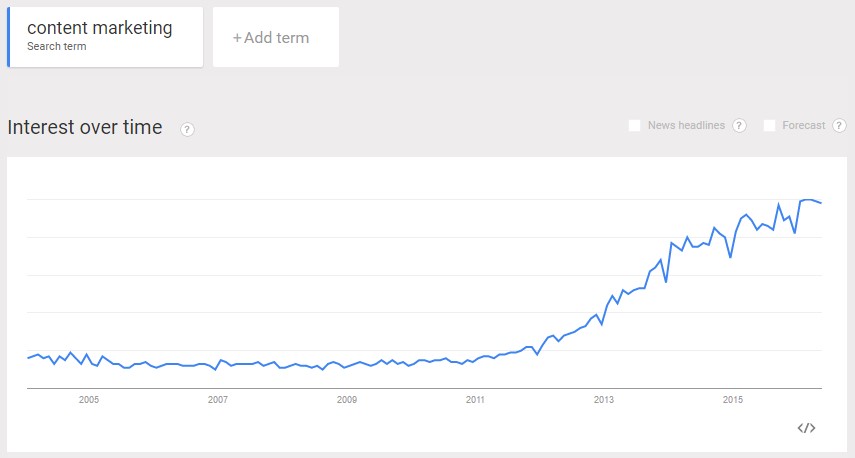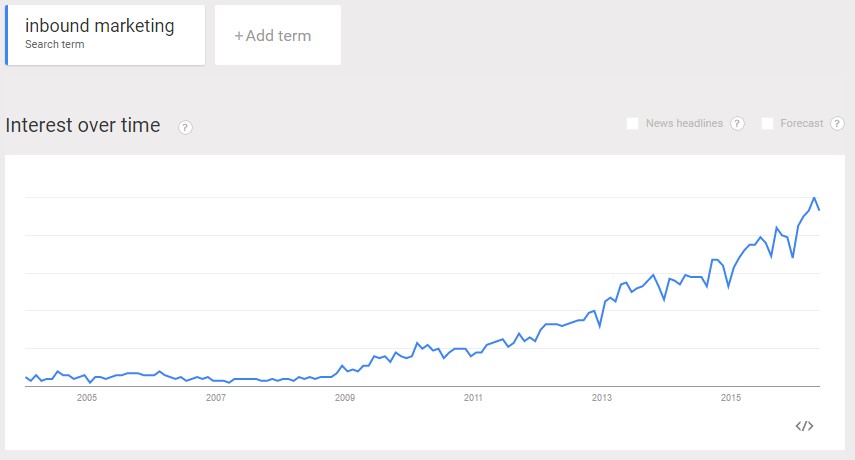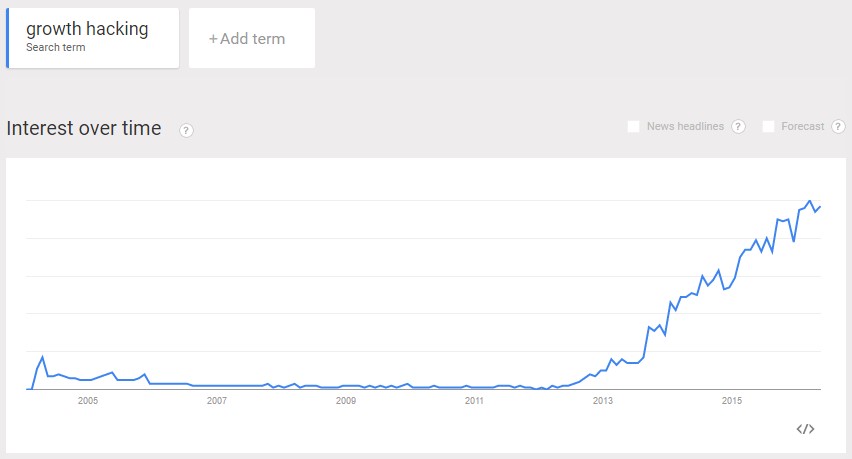-
 9 min. read
9 min. read
-
 Ryan Maake
Ryan Maake Lead Marketing Consultant
Lead Marketing Consultant
- Ryan is a Lead Marketing Consultant at WebFX. Follow him on Twitter @rmaake107! @rmaake107
The digital marketing industry is well known for its fondness of industry-specific buzzwords. Whether we mean to or not, many of us find ourselves using them when discussing new ideas and projects. Everyone wants to sound like they know what they’re talking about, after all.
However, marketing terms evolve so quickly that we sometimes need to take a step back and really think about what we’re saying when we talk marketing. So, here are three of the most commonly misunderstood terms today, along with a brief history of where they came from.
A quick note on marketing terminology
This topic usually results in some amount of controversy. There are two main camps:
- Those who think new terms are really just recycled, rebranded, and redundant “marketing 101” concepts
- Those who think this new terminology is both unique and necessary to the industry
As far as I can tell, folks in the first camp aren’t actually upset about the use of new terminology. The evolution of industry nomenclature is to be expected, and nothing to worry about in and of itself. Their issue with new terms is more centered on who is using them.
Most of those who gripe about changing terminology seems to think that new marketers often use buzzwords as a stand-in for legitimate, foundational marketing knowledge. This post isn’t a meditation on which view is right or wrong. The fact of the matter is that the terminology surrounding marketing is always changing, and it will continue to do so.
I do believe that exploring exactly what these marketing buzzwords mean and where they come from is a helpful exercise in cutting through the ambiguity that often surrounds Internet marketing, no matter how you feel about their usage.
Explore Digital Marketing Terms
Content marketing
“Content marketing” is so widespread within the digital marketing industry that it’s seen as a cornerstone to some agencies. Still, it’s a relatively recent concept, and one that can be confusing at times.
What is it?
Content marketing is any form of marketing that utilizes the creation and sharing of… well, content. It’s very much an umbrella term and encompasses many different forms of content.
In a sense, “content marketing” is redundant in that content is absolutely a prerequisite for marketing. How can you market without content? It has always been the vehicle for marketing messages, even if it’s taken new forms with the rise of the Internet.
Where did it come from?
The term “content marketing” can be traced back as early as 1996. The concept of content marketing, however, was actually practiced all the way back in 1895 when John Deere published the first-ever custom magazine The Furrow. The phrase has exploded in popularity fairly recently, beginning in 2011 or so:  Today, content marketing can take the form of blog posts, articles, infographics, downloadable guides, videos, and more – the possibilities are virtually endless. Basically, any time your business creates something with the goal of entertaining or informing your potential customers, you’re using content marketing.
Today, content marketing can take the form of blog posts, articles, infographics, downloadable guides, videos, and more – the possibilities are virtually endless. Basically, any time your business creates something with the goal of entertaining or informing your potential customers, you’re using content marketing.
It serves many different purposes, too. The content you create can be shared on social media, pitched to other site owners, and used to build links. You can also use it to engage with your audience and help them learn about a new subject.
Should we be using it?
Experienced marketers may shake their heads at the thought of “content marketing” being something new.
However, it does serve as a fairly straightforward, helpful term when explaining the concept. Hang-ups on the redundancy of “content marketing” are somewhat warranted, but the term and the strategy it represents can most definitely be used effectively.
Inbound marketing
“Inbound marketing” definitely isn’t new in 2025, but it’s just as widely used as it has been for the past handful of years.
What is it?
According to Wikipedia, inbound marketing is: “…promoting a company through blogs, podcasts, video, eBooks, newsletters, whitepapers, SEO, physical products, social media marketing, and other forms of content marketing which serve to attract customers through the different stages of the purchase funnel.” This may sound extremely similar to content marketing – and that’s because it is. Creating and promoting great content is a huge component of inbound marketing as a whole.
Essentially, inbound marketing includes anything that draws potential customers in instead of reaching out to them through ads on the radio or in newspapers. It’s not disruptive, and it helps them find you when they actually want to. For example, let’s say Joe’s car needs an oil change.
This is his first car, so he doesn’t know exactly what an oil change involves if he can do it himself, where to get the correct oil, and so on. Joe heads to Google and searches for something like “oil change how to,” or “oil change guide.” One of the top results turns out to be a free, comprehensive guide on what an oil change is, why it’s necessary, how to do it yourself, and where you can go to get it done – published by a local auto repair shop. From then on, Joe refers to that auto shop for all of his information and hires them when he needs his car serviced.
That is an example of inbound marketing in action. You publish a high-quality or authoritative resource, and let potential customers use it for free. This helpful, informative content establishes trust and makes customers more likely to engage with your business.
Joe and the auto shop is a very simple, idealistic representation of the process, but it gets the fundamental concept across. Inbound marketing is really about marketing to potential customers at their own pace.
Where did it come from?
The concept of inbound marketing has been around for a while. The term itself, however, was really only popularized in the mid-2000s:  It’s hard to be definitive, but this increase in use aligns closely with the rise of inbound marketing giant Hubspot.
It’s hard to be definitive, but this increase in use aligns closely with the rise of inbound marketing giant Hubspot.
Many do maintain that the term “inbound marketing” was popularized by the company because they sell “inbound marketing software” first and foremost. However, this increase also aligns with the growth of the Internet marketing industry as a whole. And considering that many online strategies like SEO focus entirely on reaching customers who are searching for specific products, it makes sense that an “inbound” approach became much more common.
Should we be using it?
Honestly, it’s hard not to use the term “inbound marketing” in 2025.
It’s an accurate description of the approach and one that has proven to be extremely effective for reaching new customers. It also adds value to marketer-marketer and marketer-client interactions. So, no matter how you feel about its place in the marketing world, inbound marketing is much less of a “flavor of the month” buzzword than many others we’ve seen fall in and out of use in the past.
Growth Hacking
The concept of growth hacking was popularized in 2013, and for a while, it seemed like every marketer was trying to figure out how to do it.
What is it?
Short and sweet, growth hacking refers to the practice of determining the fastest way to grow a business.
This might involve experimenting in many different marketing channels simultaneously, or pouring all resources into a certain marketing angle that has worked in the past.
Growth hacking is frequently employed by startups and smaller businesses that don’t have extensive marketing budgets. It often utilizes low-cost or even free marketing channels like social media.
Where did it come from?
“Growth hacker” was first said by entrepreneur Sean Ellis in a 2010 blog post titled “Find a Growth Hacker for Your Startup.” Unfortunately, the original post is no longer online. The term didn’t really gain significant traction until it was further circulated by marketers Andrew Chen and Aaron Ginn, and ultimately until Sean Ellis and Everette Taylor founded the GrowthHackers community.
You can see its growth below: 
Should we be using it?
There’s already been some controversy surrounding the legitimacy of growth hacking as a useful marketing term: This Mashable post claims “growth hacking” to be “just a new buzzword.” While the term has clearly stayed around since 2013, I tend to side with the Mashable post. The terms “growth hacking” and “growth hacker” really don’t add anything to a marketing discourse, and come across more as a gimmick than anything else. Let’s take a look at “growth hacker” and “marketer” at the most basic level.
The goal of each is simply to grow the active customer base of a product or service. Fundamentally, there’s no difference between the two. At a higher level, you could make an argument that a “growth hacker” and a “marketer” do take different paths.
Because growth hackers are almost exclusively associated with startups, there is the supposition that a growth hacker needs to be more innovative, needs to maintain a more diverse skill set, and needs to be comfortable working within strict or non-existent budgets. The day-to-do responsibilities of a growth hacker are often more varied than those of a traditional marketer, because startups and small businesses are always on the hunt for ways to do things faster and cheaper. In that way, sure: “Growth hacking” is a legitimate term that simply describes a specific subset of “normal” marketing.
Overall, though, I can’t shake the feeling that “growth hacking” is a garish buzzword used by startups to hire recent college grads on the cheap. I mean, telling your friends that you’re a “growth hacker” sounds cooler than just “online marketer.” I think “growth hacking” and “growth hacker” are intentionally obfuscating terms used to dress up low-budget, scrappy marketing as being more glamorous than it actually is. That’s pretty much the definition of a useless buzzword.
Using new marketing terms
Always remember that, as marketers, our job is to help other businesses succeed.
A buzzword should be used only if it:
- Streamlines an explanation
- Clarifies in a conversation
- Adds value to an interaction
If it doesn’t serve any of those three purposes, you can probably cut it out of your vocabulary for good.
-
 Ryan is a Lead Marketing Consultant at WebFX. Follow him on Twitter @rmaake107!@rmaake107
Ryan is a Lead Marketing Consultant at WebFX. Follow him on Twitter @rmaake107!@rmaake107 -

WebFX is a full-service marketing agency with 1,100+ client reviews and a 4.9-star rating on Clutch! Find out how our expert team and revenue-accelerating tech can drive results for you! Learn more
Try our free Marketing Calculator
Craft a tailored online marketing strategy! Utilize our free Internet marketing calculator for a custom plan based on your location, reach, timeframe, and budget.
Plan Your Marketing Budget

Proven Marketing Strategies

Proven Marketing Strategies
Try our free Marketing Calculator
Craft a tailored online marketing strategy! Utilize our free Internet marketing calculator for a custom plan based on your location, reach, timeframe, and budget.
Plan Your Marketing Budget
What to read next





